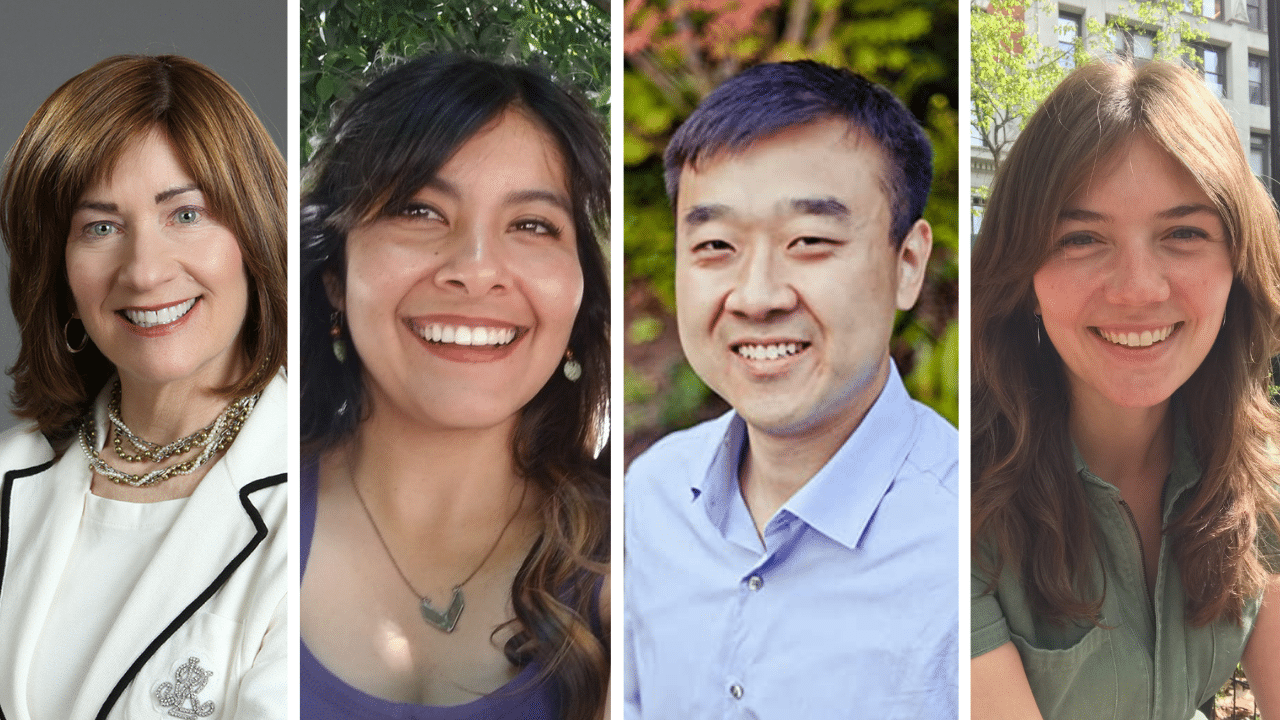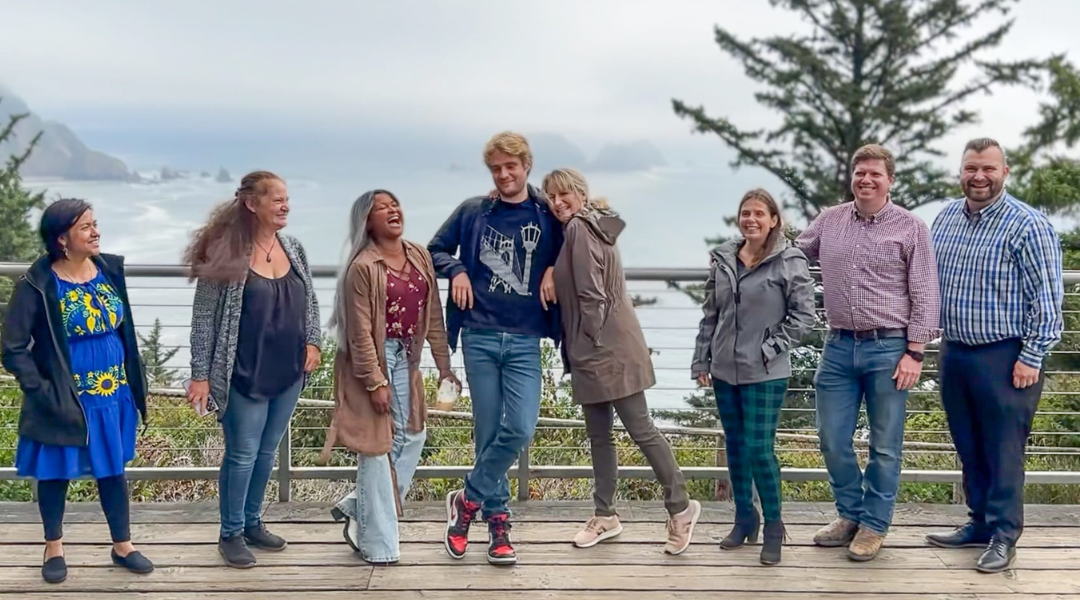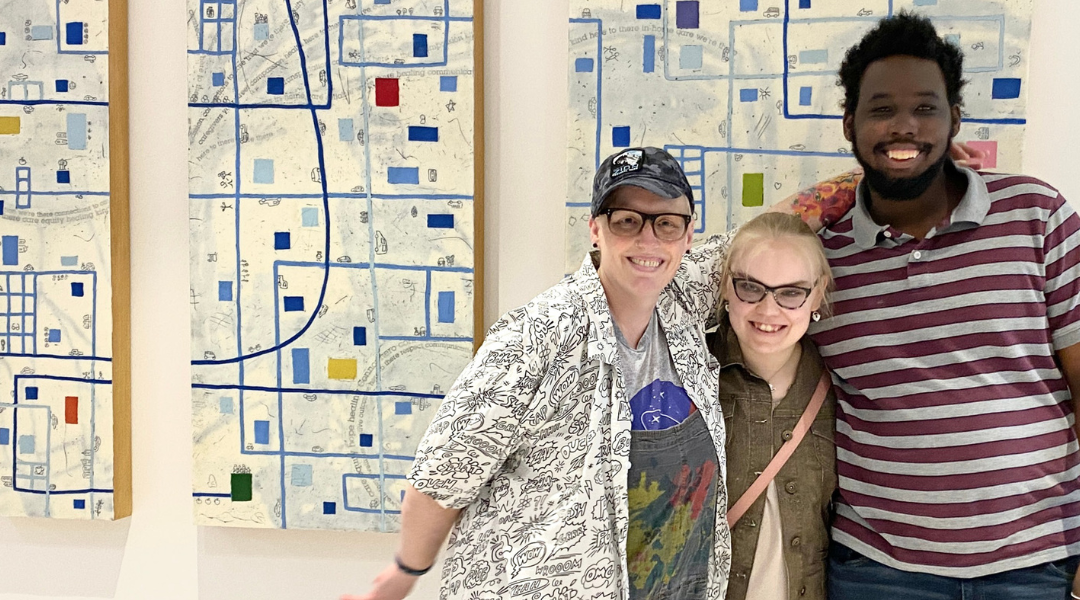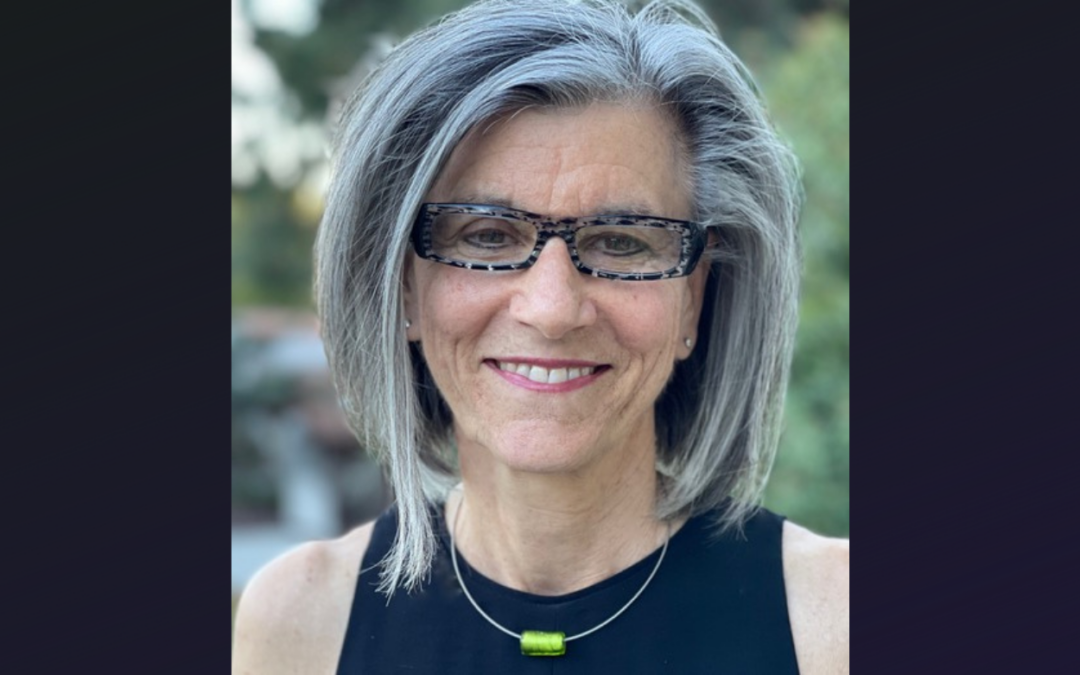
Pamela Gordon, Montserrat Plascencia, Jimmy Jia and Annie Leverich.
On September 1, author and climate activist Bill McKibben announced that he’s launching Third Act to get more older Americans involved in climate activism.
That’s good news. Too much responsibility has fallen on young people to lead the charge in demanding more swift action to avoid a climate crisis. But what’s truly needed is not only increased engagement from older adults, but more intergenerational collaboration.
Here’s a story about a multigenerational team working in the climate change space that inspires me. Unlike traditional consulting companies that tend to be very hierarchical, PGS Consults sees age diversity and varied subject area expertise as an asset when advising organizations of all sizes on how to become more socially and environmentally responsible.
The group is a consulting arm of the Presidio Graduate School, a program in San Francisco that teaches students to approach business decisions with equal emphasis on people, profit and planet. And its unique approach — creating teams of students, alumni, professors and seasoned professionals — acknowledges the urgency for new thinking and creative solutions.
For Montserrat Plascencia, 28, the opportunity to leverage her background as a community organizer, collaborate with her professors and other experts in the field, and receive compensation equal to other internships was a no-brainer.
“Working with this team has been amazing,” she says. “I bring an understanding of how to engage people at the local level, and I’m learning about strategy, operations and how to build successful client relationships from my older colleagues.”
Born in Mexico and raised in Los Angeles, Plascencia says she’s always felt most comfortable working within multicultural and multigenerational groups. “In America, there’s so much value placed on individualism,” says Plascencia. “One thing I like about working to reverse climate change is that it requires us all to share knowledge, work together and create collective impact.”
Bringing the collective impact of talent at Presidio Graduate School to organizations that want to become sustainability leaders was an appealing challenge for Pamela Gordon who, at 62, had spent 30 years selling and conducting management consulting.
“The students don’t often have a lot of sales experience, and their knee-jerk reaction might be to talk to a manager rather than a VP or C-suite,” says Gordon. “We really push them to bring the message to the top. Clients value the student perspective and how much creativity and passion they bring.”
As the oldest person on the team, Gordon says she feels respected and sees her role as a delicate balance between harnessing the students’ creativity and providing focus. She rarely vetoes anything the students come up with.
“The no veto policy is critical,” Gordon stresses. “If we use our experience to veto or bridle the younger generation’s views, we’re missing out on huge value. These younger people are dedicating their lives to becoming effective changemakers on climate and social justice. Why wouldn’t I want to leverage their fresh ideas and energy, to see their passion realized?”
Instead of jumping in — “that’s never worked for me,” says Gordon — she stops to appreciate the idea, amplify it and help shape it based on her experience.
Gordon knew that Jimmy Jia, a 41-year-old author and professor of climate change and strategy at Presidio Graduate School, would be a natural at this practice. “The projects I’ve worked on have all been student-led,” says Jia. “I meet with them to review what they’re working on and make suggestions. It fits nicely with my style, because it’s more about mentorship.”
In a classroom setting, Jia says he can influence more people with the subject matter he’s covering. But mentoring requires getting into each student’s mind and understanding their context and viewpoints. “It’s more intensive,” says Jia, “but also more rewarding.”
Jia stresses the value of a multigenerational climate movement. “The students working on our projects are going to live multiple decades beyond people in my generation,” he says, “and anything we do is going to be more effective if we add their perspective.”
Annie Leverich, 29 and a graduate student, jumped at the chance to be part of a PGS Consults team. Her colleagues “really encourage innovation, new ideas and alternative solutions,” she says, “because the status quo doesn’t seem to be getting us where we want to go.”
But speaking up hasn’t been easy. As a younger woman, Leverich says it’s been hard to express her opinion in more traditional work environments without worrying if she overstepped. “They really make space to give us the floor and ask for updates,” she says of her older colleagues at PGS Consults, “and I really appreciate that.”
Leverich says a shared anxiety about the future creates a bond among those working in the climate change space. “Whether you’re worried about your own life, the life of your children or the life of a particular species of animal, when you share that worry with other people who understand, it becomes a bit easier and it feels like common ground.”





